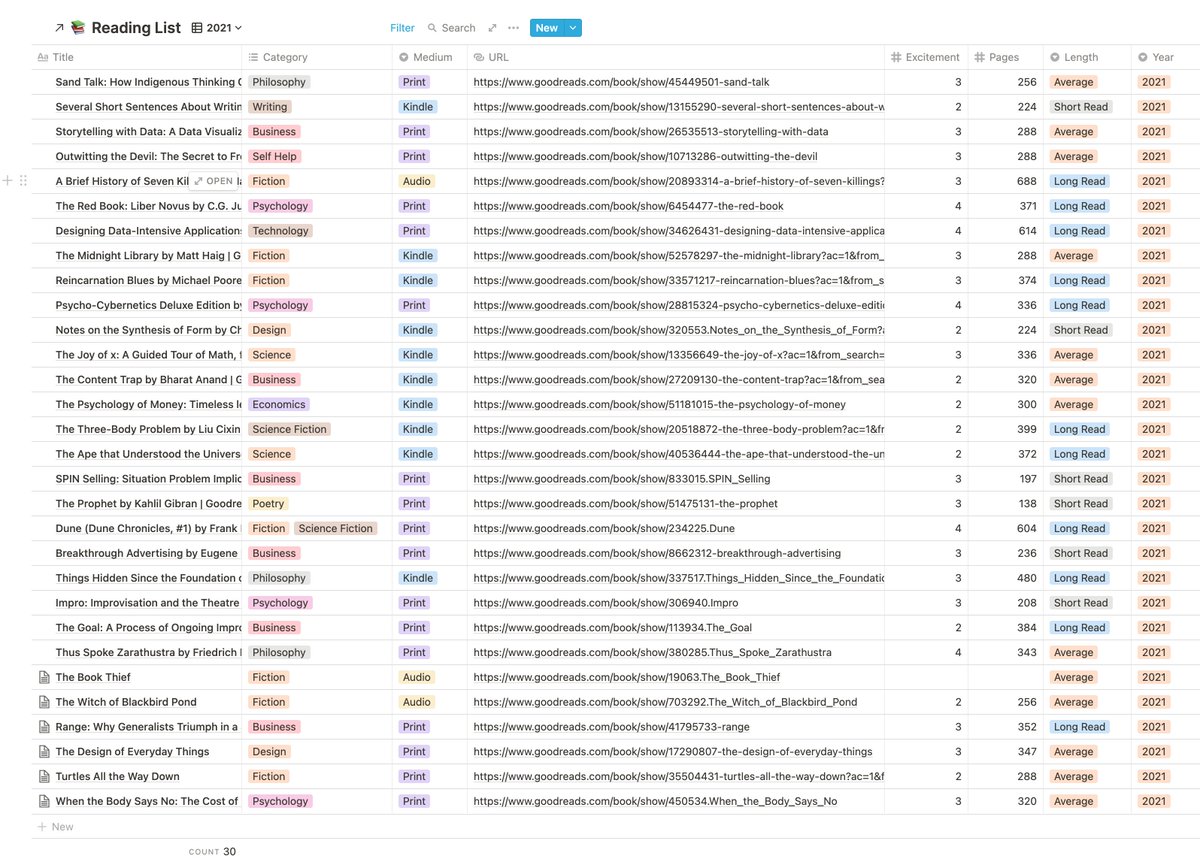
Journaling is the practice that cultivates the skill of introspection, awareness, and intuition.
It's also the cheapest form of therapy closest to working out.
✍️ Here are different types of journals you can utilize.
It's also the cheapest form of therapy closest to working out.
✍️ Here are different types of journals you can utilize.
1/ Empathy Journal: Writing the story of other people, imagining their experience and viewpoint.
Integrating this kind of journal helped me move away from "I" and "Me" and closer to "You" and "We" or a specific person.
Training me to mirror the emotions of others as a skill.
Integrating this kind of journal helped me move away from "I" and "Me" and closer to "You" and "We" or a specific person.
Training me to mirror the emotions of others as a skill.
2/ Day Journal: Writing about your experiences of the day.
The most common type of journal and a great way to minimize false memories from long gaps of time.
Also helps to process events on the day they occurred rather than months later.
The most common type of journal and a great way to minimize false memories from long gaps of time.
Also helps to process events on the day they occurred rather than months later.
3/ Gratitude Journal: Writing about what you're grateful for.
I find myself wishing I've done more of this writing. We tend to focus on what we don't have, and not what we have until what we have is gone.
I feel a gratitude journal is vital for happiness & simplicity.
I find myself wishing I've done more of this writing. We tend to focus on what we don't have, and not what we have until what we have is gone.
I feel a gratitude journal is vital for happiness & simplicity.
4/ Mood Journal: Writing about a specific feeling and the activities and thoughts around it.
Great for presence in the moment and great way of building up to more long-form types of journaling.
A number of great tools & apps available to make mood journaling a daily habit.
Great for presence in the moment and great way of building up to more long-form types of journaling.
A number of great tools & apps available to make mood journaling a daily habit.
5/ Topic Journal: Writing about a specific point of interest of theme.
If a topic comes: "Money", "Focus" etc, you can write a sentence of any resonating thought around it.
The goal is to keep it simple & time stamp your new entries to see your opinion evolve over time.
If a topic comes: "Money", "Focus" etc, you can write a sentence of any resonating thought around it.
The goal is to keep it simple & time stamp your new entries to see your opinion evolve over time.
6/ Audio Journal: Recording your experiences through audio notes.
If you convey your thoughts best through speech an audio journal is a great supplement to a written journal.
Think of it as a voice note to your future self.
If you convey your thoughts best through speech an audio journal is a great supplement to a written journal.
Think of it as a voice note to your future self.
7/ Video Journal: Recording Video talking about your experiences.
Public vlogs are popular. You can experiment w/ private video journals to practice speaking on camera even if you don't plan to share.
Video will also capture your body language & voice for richer experience.
Public vlogs are popular. You can experiment w/ private video journals to practice speaking on camera even if you don't plan to share.
Video will also capture your body language & voice for richer experience.
8/ Bullet Journal: Task and Event Journal
If you tend to prioritize organization and work, you might find it easier to integrate the journaling practice as part of your daily task/todo management.
Bullet Journals are a great flexible analog system for the productivity focused.
If you tend to prioritize organization and work, you might find it easier to integrate the journaling practice as part of your daily task/todo management.
Bullet Journals are a great flexible analog system for the productivity focused.
9/ Decision Journal: Notes on why you made certain decisions.
Writing down the important life decisions you have to make will help you think and plan more clearly as well as improve future decisions.
A decision journal helps to capture the energy, thoughts & alternatives.
Writing down the important life decisions you have to make will help you think and plan more clearly as well as improve future decisions.
A decision journal helps to capture the energy, thoughts & alternatives.
10/ Conversational Journal: Conversational Journal
A blend of multiple journal forms but it involves conversations with friends or acquaintances that are recorded or transcribed into a journal entry.
A blend of multiple journal forms but it involves conversations with friends or acquaintances that are recorded or transcribed into a journal entry.
• • •
Missing some Tweet in this thread? You can try to
force a refresh
















